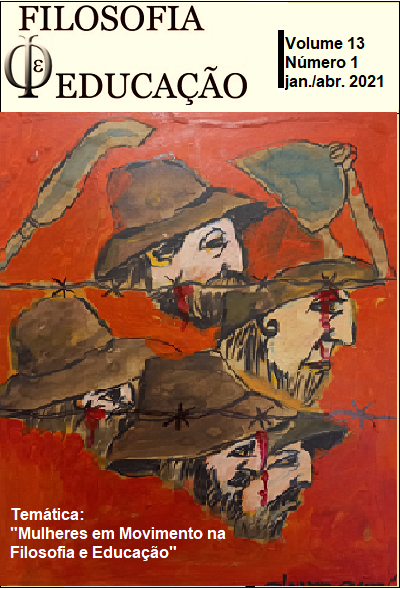Abstract
This paper aims to identify the possibility of an objective science, free of ideologies, in the sense commonly attributed to the physical sciences. Ideologies can be used primarily in two different ways: to reinforce individual interests or beliefs; or confront opposing ideological assumptions. Thus, even if a field of science can be built on skewed ideologies or theoretical assumptions, the rigorous tests by which the theories are subjected bring the theories closer to the truth and it can lead to the rejection of those contrary to the available evidences. The truth proves to be an essential value, but it is not the only one, for the practice of science.
References
CUNHA, Ivan F. Utopias and Forms of Life: Carnap’s Bauhaus Conferences. Natal: Princípios Revista de Filosofia, v. 24, n. 45 Set.-Dez. 2017, p. 121-148.
FEYERABEND, Paul K. Against method. 3rd ed. London: Verso, 1993.
FEYERABEND, Paul K. How to Defend Society Against Science. Phylosophy Society at Sussex University: November, 1984.
FEYERABEND, Paul K Farewell to reason. London: Verso, 1987.
FRIEDMAN, Milton. The methodology of Positive Economics. In: Essays in Positive Economics. Chicago: University of Chicago Press, 1966. p. 3-16, 30-43.
HAACK, Susan. Neither Sacred Nor a Confidence Trick: the Critical Common-Sensist Manifesto. In: HAACK, Susan. Defending Science – Within Reason: between scientism and cynicism. New York: Prometheus, 2007. pp. 17-30.
HAACK, Susan. The Long Arm of Common Sense: Instead of a Theory of Scientific Method. In: HAACK, Susan. Defending Science – Within Reason: between scientism and cynicism. New York: Prometheus, 2007. pp. 93-121.
HANDS, D. Wade. Popper and Lakatos in economic methodology. In: MAKI, Uskali; GUSTAFSSON, Bo; KNUDSEN, Christian. Rationality, institutions and economic methodology. London: Routledge, 1993. p. 61-75.
HESSEN, Boris. The social and economic roots of Newton’s Principia. In: FREUDENTHAl, G; MCLAUGHLIN, P. Boston Studies of Philosophy of Science. Springer, 2009.
KOERTGE, Noretta. Ideology, Science and a Free Society. In: MUNEVAR, Gonzalo. Beyond reason: essays on the philosophy of Paul Feyerabend. Dordrecht: Kluwer, 1991. pp. 225-242.
KUHN, Thomas S. A estrutura das revoluções científicas. 12. ed. São Paulo: Perspectiva, 2013.
MANNHEIM, Karl. Ideology and utopia. London: Routledge, 1954.
POPPER, K. R. Autobiografia intelectual. 2. ed. São Paulo: Cultrix. 1986.
POPPER, K. R. The Myth of the Framework: in defence of science and rationality. London: Routledge, 1994.
POPPER, K. R. Conhecimento objetivo: uma abordagem evolucionária. Belo Horizonte: Itatiaia, 1975.
POPPER, K. R. Lógica das ciências sociais. 3. ed. Rio de Janeiro: Tempo Brasileiro, 2004.

This work is licensed under a Creative Commons Attribution-NonCommercial-ShareAlike 4.0 International License.
Copyright (c) 2021 Bruno Hümmelgen

